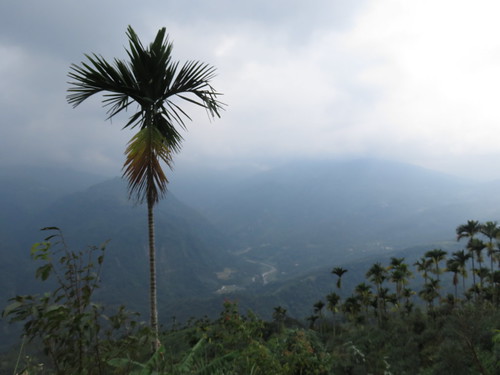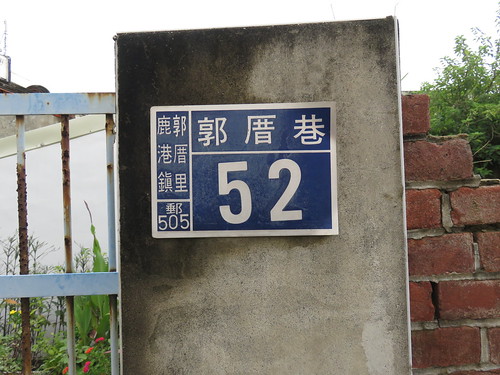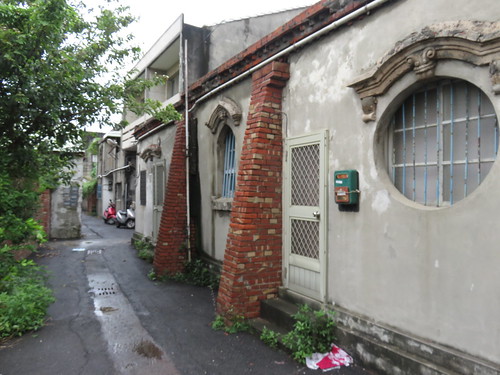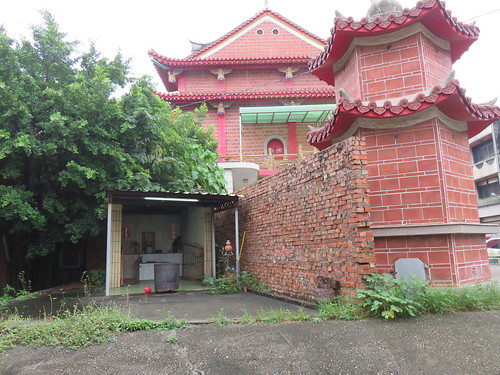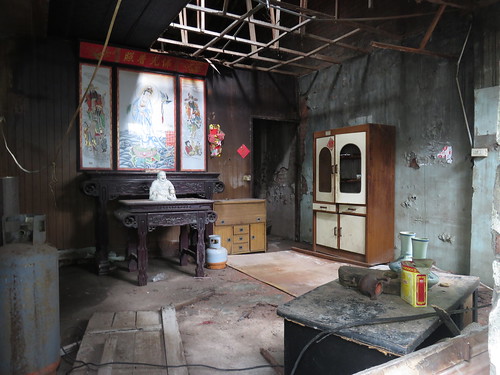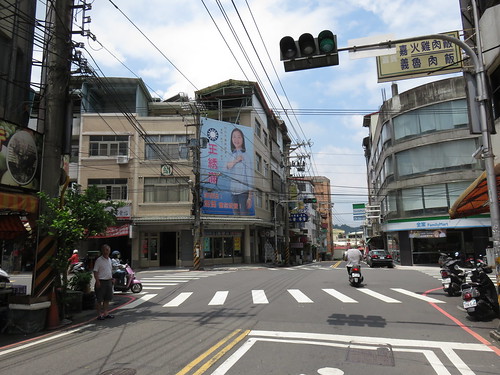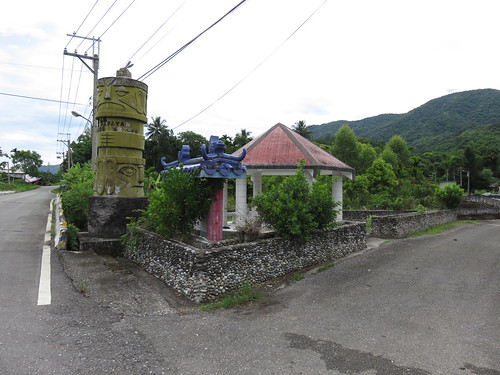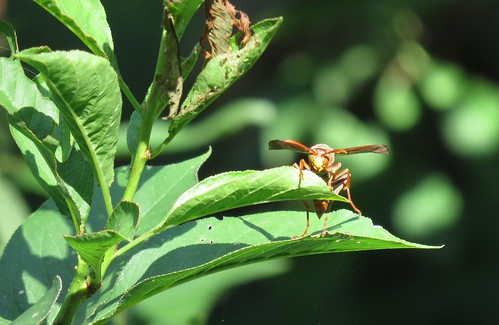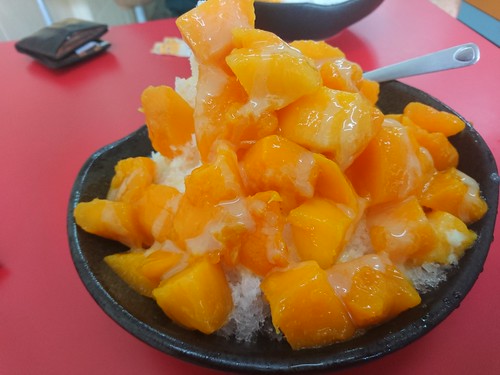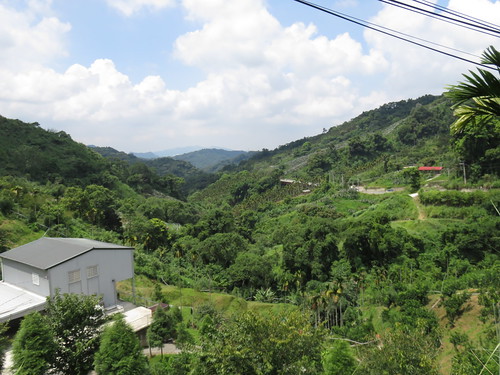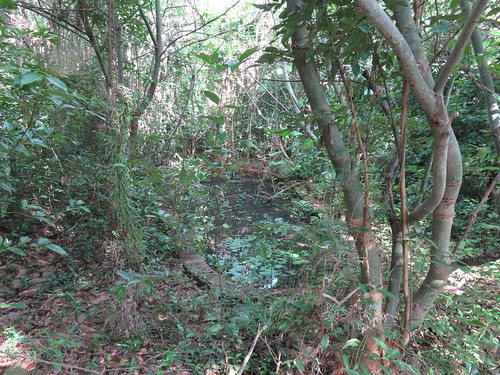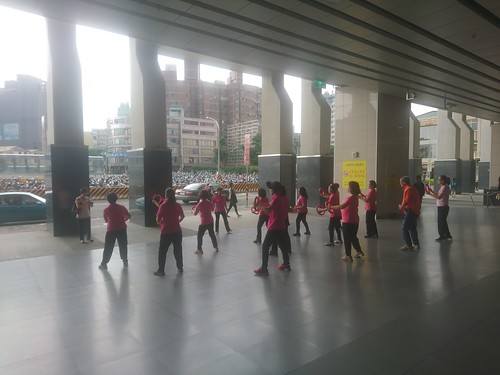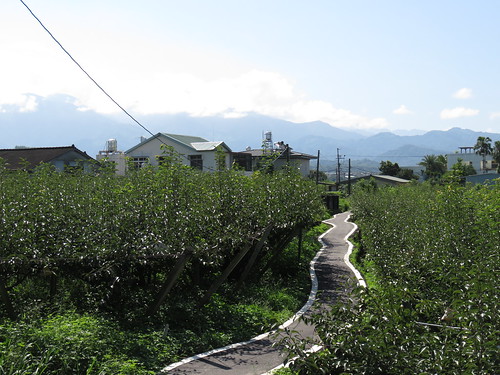Who lives here...
Hokkien immigrants to Taiwan originated from Quanzhou prefecture (44.8%) and Zhangzhou prefecture (35.2%). --
Wiki
+++
A group of South Indian merchants, most probably Tamils, financed and endowed a Hindu temple at the principal Chinese international port, Quanzhou in the twelfth century CE --
source
+++
....Yet it is clear that Quanzhou was host to traders who were themselves devotees of Shiva, and that at various times these traders amassed enough influence within the community to erect monuments to their god.
Their position within the city is further evident from the extensive iconographie material evocative of Shiva and the Shiva cult that was incorporated into the motifs of the Kaiyuan Temple, the dominant Buddhist temple of the city, during later reconstructions. Unfortunately, none of the images can be dated with any precision, but all are considered to belong to the thirteenth or fourteenth centuries. They include several uses of Ungarn and other motifs that are equally strongly connected with the god, such as the sacred cow.36 Shiva is not the only Indianized image found there; Vishnu, for example, is also featured, though less often.37 --
source
+++
A late thirteenth-century bilingual Tamil and Chinese-language inscription has been found associated with the remains of a Siva temple of Quanzhou. This was one of possibly two south Indian-style Hindu temples that must have been built in the southeastern sector of the old port, where the foreign traders' enclave was formerly located. [It reads]:
[Tamil]: "Obeisance to Hara (Siva)! Let there be prosperity! On the day Citra in the month of Chittira in the Saka year 1203 (1281 A.D.), the Tavachchakkarvarttigal Sambandhap-perumal (a Saiva religious leader) caused, in accordance with the firman (written permission) of Chekachai Khan (the Mongol ruler), to be graciously installed the God Udaiyar Tirukkadalisvaram Udaiya-nayinar (Siva), for the welfare of the illustrious body of the illustrious Chekachai Khan." -- source
+++
...Another historian records, "A large number of Moslem, Nestorian, Catholic, Manichean and Hindu inscriptions are found in the area. ... The inscriptions are in Arabic, Syriac and Tamil." --
source
+++
Cao'an (Chinese: 草庵; pinyin: Cǎoān; Pe̍h-ōe-jī: Chháu-am; literally: "thatched nunnery"[1]) is a temple in Jinjiang, Fujian. Originally constructed by Chinese Manicheans, it was viewed by later worshipers as a Buddhist temple. This "Manichean temple in Buddhist disguise"[2] is seen by modern experts on Manichaeism as "the only extant Manichean temple in China",[3] or "the only Manichean building which has survived intact".[4]
The temple is located on the southern slope of Huabiao Hill near Shedian Village just west of downtown Jinjiang.[5][6] Jinjiang is part of Quanzhou, which was known historically as "Quanzhou Prefecture"; the location is some 50 kilometres (31 mi) south of downtown Quanzhou.[4] --
Wiki
+++
...From the beginning of the Yuan, foreign troops loyal to the Mongols, from Yangzhou and Huzhou, were stationed in Quanzhou. They were allied with the Persian community in Quanzhou. During the decline of the Yuan Dynasty, the foreign troops turned against the Mongolian elites in an attempt to set up their own state. When the foreigners discovered the weakness of the Yuan troops in their attempts to suppress rebels in Xinghua, they initiated rebellion. The leaders of the rebellion were the descendants of the powerful trading families of Pu Shougeng and Nawuna, the Trade Superintendent at the time. This rebellion of foreign ethnic groups, called the Ipsah Rebellion by historians (Chen, 1992, p. 8; Zhuang, 1980b), lasted 10 years and involved a large area including Fuzhou, Quanzhou, and Xinghua. According to Maejima (1973,1974) and Zhuang (1980b), the first 5 years of the rebellion were characterized by a struggle between Persian forces in Quanzhou and Xinghua, while the latter 5 years were dominated by a rebellion started by Nawuna and Pu Shougeng descendants who wanted to expand trade but were restricted by the Mongols. Zhuang states that the immediate cause of the outbreak was the Muslim disapproval of the building of a Hindu temple on the site of the former governor’s residence (Zhuang, 1980b, pp. 23–24). --
source
+++
In the early fourteenth century, the most prosperous merchants in Quanzhou were Muslims of both Chinese and non-Chinese origin. Epigraphic and other evidence points to the strong position of this group in Quanzhou's society.
--
source
+++
The Ding or Ting family of Chendai in Quanzhou claims descent from the Muslim leader Sayyid Ajjal Shams al-Din Omar through his son Nasr al-Din or Nasruddin (Chinese: Nasulading).[62] The Dings have branches in Taiwan, the Philippines, and Malaysia among the Chinese communities there, no longer practicing Islam but still maintaining a Hui identity. The deputy secretary-general of the Chinese Muslim Association on Taiwan, Ishag Ma (馬孝棋) has claimed "Sayyid is an honorable title given to descendants of the Prophet Mohammed, hence Sayyid Shamsuddin must be connected to Prophet Mohammed". The Ding family in Taisi Township in Yunlin County of Taiwan, traces descent from him through the Ding of Quanzhou in Fujian.[63] Nasruddin was appointed governor in Karadjang and retained his position in Yunnan till his death, which Rashid, writing about 1300, says occurred five or six years before. (According to the Yüan shi, "Nasulading" died in 1292.) Nasruddin's son Abubeker, who had the surname Bayan Fenchan (evidently the Boyen ch'a-r of the Yüan shi), was governor in Zaitun at the time Rashid wrote. He bore also his grandfather's title of Sayid Edjell and was Minister of Finance under Kublai's successor.[64] Nasruddin is mentioned by Marco Polo, who styles him "Nescradin".[65][66][67] --
Wiki
+++
Quanzhou initially continued to thrive under the Southern Song produced by the Jin–Song Wars. A 1206 report listed merchants from Arabia, Sumatra, Cambodia, Brunei, Java, Champa, Burma, Korea, and the city-states of the Philippines. One of its customs inspectors, Zhao Rugua, completed his compendious Description of Barbarian Nations c. 1225, recording the people, places, and items involved in China's foreign trade in his age. Other imperial records from the time use it as the zero mile for distances between China and foreign countries. Tamil merchants carved idols of Vishnu and Shiva[38] and constructed Hindu temples in Quanzhou. Over the course of the 13th century, however, Quanzhou's prosperity declined due to instability among its trading partners[30] and increasing restrictions introduced by the Song in an attempt to restrict the outflow of copper and bronze currency from areas forced to use hyperinflating paper money. The increasing importance of Japan to China's foreign trade also benefited Ningbonese merchants at Quanzhou's expense, given their extensive contacts with Japan's major ports on Hakata Bay on Kyushu. --
Wiki
+++
Serving kung fu tea and speaking a south Fujian dialect, Guo Jingzhuan, 52, a ship owner from Shiyu village in east China's Fujian Province, is proud of his seafaring ancestry.
Almost all the residents in his village are descended from Arabian merchants, who travelled to Quanzhou hundreds of years ago, when the city was one of the world's most vibrant ports. Guo is planning to buy another 10,000-tonne freighter later this year to join what he calls the "100,000 tonnes shipping club." --
source
+++
The Fujian city of Quanzhou, today a prefecture level city of approximately 8 million inhabitants, grew to be one of the world’s largest ports during the Song and Yuan Dynasties. A main stopover in maritime silk route, Marco Polo talked about the city in his travel memoirs.
During the Yuan Dynasty it was home to an estimated 100,000 Arab traders and was also an important center of shipbuilding. Later, during the Ming Dynasty, Quanzhou helped supply and stage China’s largest period of naval exploration. Between 1405 and 1433, China launched seven expeditions under the command of Admiral Zheng He whose explorations took his fleet to Southeast Asia, Arabia and Africa. --
source
+++
....The earliest Chinese ethnic group came from the Quanzhou area of southern Fujian. They often came as shop keepers, factory owners or workers and they settled along the coasts or in ports. The immigrants from Zhangzhou, also in southern Fujian, came later and tended to settle on the inland plains and engage in agriculture. The Hakka, mainly from eastern Guangdong, came later and settled in upland areas. After the Hakka, much smaller groups came from other areas of Fujian such as Fuzhou and Xinghua. These groups tended to live in cities and engage in the three trades concerned with the three knives: tailors who used scissors, cooks who used kitchen knives, and barbers who used razors. Even in the 1970s, Quanzhou people tended to be in commerce and industry, while Zhangzhou people engaged in agriculture (C.-L. Chen 1972: 130).
The three big ethnic groups – the Quanzhou, Zhangzhou and Hakka – engaged in substantial armed struggle.
Of these, only the largest group, the Quanzhou, who accounted for about 45 percent of Taiwan’s population at the end of the Manchu period (calculated from C.-L. Chen 1972: 129–130), fought among themselves on the basis of origins from different counties (Lamley 1981: 283). The Zhangzhou Hokkien, who accounted for about 35 percent of Taiwan’s population,and the Hakka, who accounted for about 13 percent at the end of the Manchu period (calculated from C.-L. Chen 1972: 129–130) remained much more united as groups (Lamley 1981: 283). Yet, even the two Hokkien groups could unite when faced with a large Hakka opponent, as in the Hsia-tan shui river basin (now the Kaoping River [453 ]) on the border of modern Kaohsiung and Pingtung in southern Taiwan (Lamley 1981: 294). --
source
_______________________
[Taiwan] Don't miss the comments below! And check out my blog and its sidebars for events, links to previous posts and picture posts, and scores of links to other Taiwan blogs and forums!

